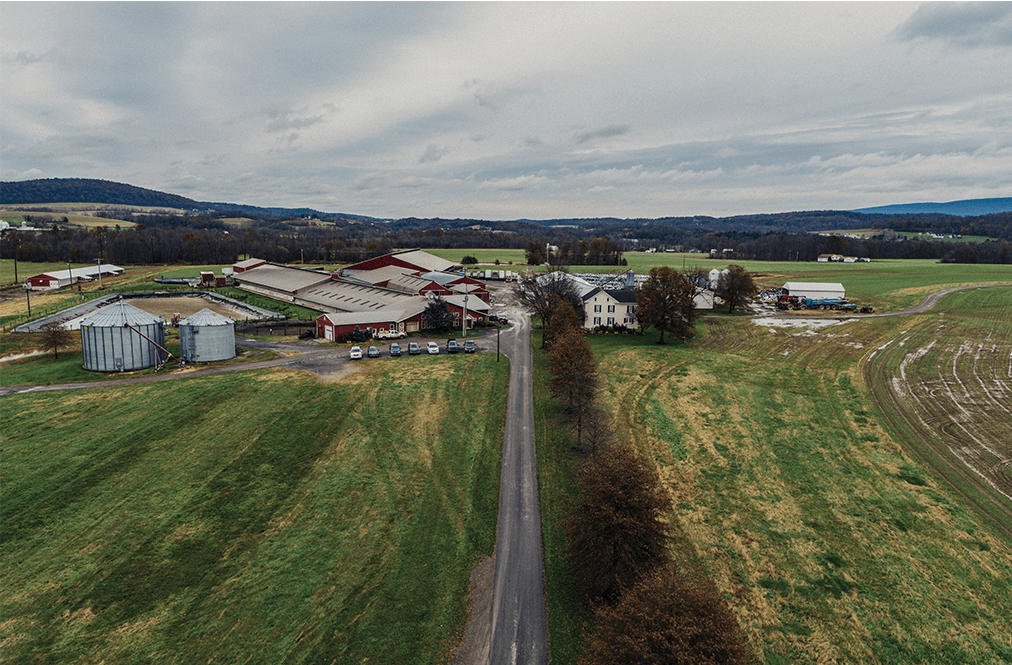What is the value of the co-op system?
A Q&A with Harold Cooper, CEO of Premier Companies

It’s National Cooperative Month, a time to celebrate and educate others about the value of being part of the co-op system and the role it plays in supporting agriculture and local communities. Few people know this better than Harold Cooper so we reached out to the CEO of farmer-owned cooperative Premier Companies and asked him a few questions.
Q: Can you tell us a little more about Premier Companies and what your business does?
A: Premier Companies was founded as a farmer-supply cooperative in 1927 in Seymour, Indiana. We provide supplies and services in the agricultural and energy sectors, including liquid fuels, propane, seed, fertilizer, crop protection and retail supply. Premier serves customers in Indiana, Ohio and Kentucky. We sell about 100 million gallons of liquid fuels a year. We also provide up to 20,000 homes with propane heat and feed about 200,000 hogs each year.
Q: For those who are unfamiliar with cooperative systems, can you explain how they work?
A: A co-op is a company that is owned and operated by the people who use its products and services. The members also benefit from what the company has to offer. I will use Premier Companies as an example. When we were founded in 1927, America was coming out of the first World War and about to enter the Great Depression. Farmers were frustrated because they were having a hard time getting supplies, fair pricing and quality products. That’s when they finally took it upon themselves to get the co-op started and look what they did.
Premier is farmer-owned, farmer-controlled. That doesn’t mean we get all their business but we make sure the farmer is central to the decision-making process and that their values, needs and interests are represented in the marketplace. It really does allow a farmer to have a say and have some influence.
Q: How do co-ops serve farmers?
A: Once a month I report back to 12 of our farmer-owners who also serve on Premier’s Board of Directors where they tell me if I am serving them well. One of the most important advantages of a cooperative is that a significant amount of our profit goes back to our farmers in the form of patronage based on purchases they have made. A portion of patronage, 70% in our case, is returned in the form of cash and 30% is assigned to the farmer as equity and is kept by Premier to help fund ongoing operations. Over time, equity is converted to cash and returned to our farmer-owners. The reason why co-ops are so successful is because farmers, as independent as they are, still have needs in common, and see better results working with a co-op than what they would by themselves.
Q: What ways do co-ops give back to their broader communities?
A: We try to give back as much as we can. At Premier, 5% of our bottom line goes directly back to the community. Some of that money goes toward funding ball fields and supporting churches and hospitals. We’re also paying wages, taxes and patronage that are direct and indirect investments in our local communities.
Q: Why are co-ops well positioned to push ag forward with things like sustainability and modern technology?
A: I think we are perfectly positioned. Take cover crops for example, the practice helps us protect soil and soil movement. Not only has it proven to be sustainable, but also profitable for farmers. As a consumer, you may be concerned about where your food comes from, how well we’ve taken care of the soil, or how well we are taking care of the animals. I welcome anyone to come and see how we do that. The Truterra sustainability tool gives us a nice vehicle that standardizes our efforts and allows us to communicate back to the marketplace about the things we do in a sustainable and responsible manner.
Q: What is the overall value of the cooperative system?
A: By being a farmer-owned cooperative, we don’t automatically get the sale. Instead, we go out to earn business each and every day by making sure the farmer is always considered in the equation. That is earned trust and suggests over the last 100 years we’ve built something that has resonated with consumers and has proven to be reliable and sustainable as a business practice. I think that’s terribly important when it comes to delivering value.